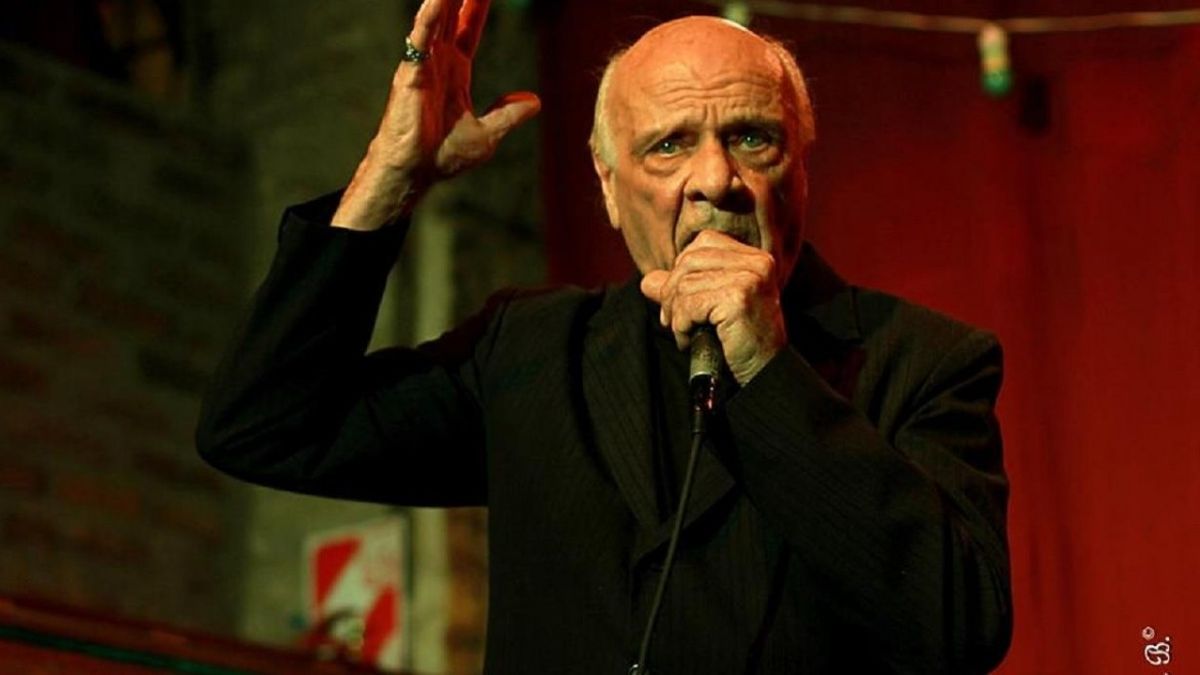“I do not conceive football without feints, without stepping on it, without a tunnel, and neither does tango without phrasing, without colors”, compared in a talk he had with Télam in 2016 the interpreter who at 17 years old played for a time in the third division of San Lorenzo (in 1946) and that at 23 he returned to the fields joining Sporting de Barranquilla, in Colombia, where he lived for four years.
Guitarist Nazareno Altamirano, who had been accompanying Peredo, said goodbye on social networks with a heartfelt message: “Today I woke up very excited and they took me down with this news…Osvaldito dear! You will be greatly missed.”
“Thank you for the gotán, on many of my young nights you were the one who put music on it….then I learned your anecdotes first-hand and you gave me your affection on various stages. But always ahead of me was the affection of a neighborhood gomía, with the warmth of the simple. Thank you! For something you are immensely loved! “, he added.
Peredo, who had been in full activity for years, also accompanied by the bandoneon player Cindy Harcha, maintained in that conversation with this agency that continuing to sing kept him alive.
“In life you have to run all the balls, maybe sometime you score a goal. Doing keeps you alive”, said the interpreter, who for 15 years sang in the legendary Boliche de Roberto, in the Almagro neighborhood.
Although the issue of recognition never took his sleep away, for a few years his figure has been claimed by many colleagues from the bohemian tango scene, especially young people in love with the Buenos Aires song.
“I never had any complaints with that, I’m happy now. Sometimes I like what I do and sometimes I don’t like it, poor is the one who thinks he’s arrived. The nice thing is to continue, never feel like a teacher, always a student, that’s how you survive, that’s how you want to continue more, “said the interpreter.
“For me tango is said, if there is no feeling there is nothing”, said Peredo, who left behind two albums: “Tango” (2007) and “Osvaldo Peredo with the Orquesta Típica de Almagro” (2013), where he condenses the repertoire that the singer forged in the early morning hours of El Boliche de Roberto together with poets and instrumentalists in their thirties.
Peredo enjoyed a great moment as a singer. “The important thing is to sing and sing, and one is forming. I have references. Gardel had no references because it was he who invented tango. Gardel always seemed mysterious to me, an alien, his sound always caught my attention, he was also a composer and actor, the word Gardel should be synonymous with phenomenon”.
Goyeneche, Moran, Rufino. Floreal Ruiz, Vidal and Casal are some of the singers that Peredo admired: “I was born in the 30s and when I was 10 years old, in the 40s, there was all that tango madness, one listens to them now and they are still in force, tango He had a flight at the time that was extraordinary,” he said.
“Discépolo used to say that to listen to it you had to throw yourself under the bed and turn off the light, tango leaves you mentally tired. Today there are a lot of young people who are enthusiastic about tango. It is becoming more select, it is no longer music for the crowd,” he added.
“Tango is beautiful, it’s sad, sweet, bitter, like life, tango is the things that happen to us and we have to tell them as they are -he continued-. Tango has many colors, it is sentimental, there are characters. Tango is performance, it is small opera, it is theatre”.
Tango continues to flourish on the margins and Peredo is for many, as well as a singer, a witness of an era, he lived through the heyday of the genre, its decline and was part of its return.
Source From: Ambito
David William is a talented author who has made a name for himself in the world of writing. He is a professional author who writes on a wide range of topics, from general interest to opinion news. David is currently working as a writer at 24 hours worlds where he brings his unique perspective and in-depth research to his articles, making them both informative and engaging.




